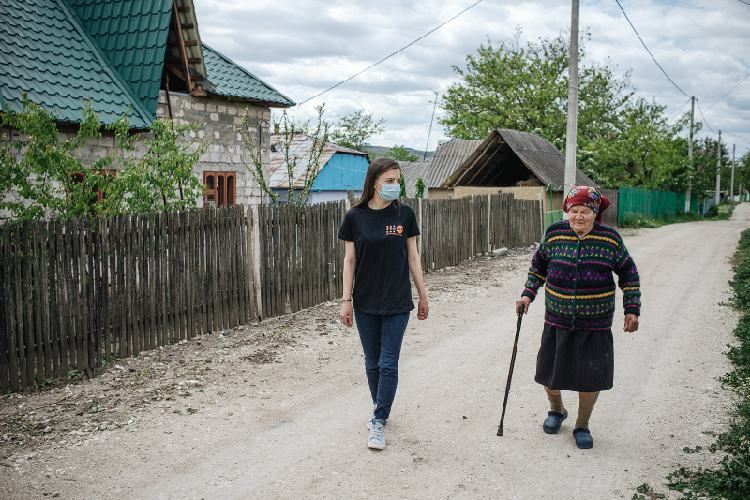About 200 older persons were phoned by 15 young volunteers as part of an initiative aimed at offering emotional support to solitary persons above 65 years of age from communities of the districts of Sângerei, Telenești, Rezina and Șoldănești. The young people were trained by an epidemiologist and psychologist how to talk to the older persons by phone in order to inform them about measures of protection against COVID-19 and how to provide emotional support during the social isolation period, IPN reports, quoting a press release of UNFPA Moldova
This way, the United Nations Population Fund (UNFPA) and the Ministry of Health, Labor and Social Protection (MHLSP) aimed to foster social cohesion and inter-generational dialogue in the context of COVID-19 pandemic.
“The older persons are most seriously hit by social isolation during the COVID-19 pandemic and the young people can offer support to them, including through information technology. UNFPA is making effort, together with the partners from the government and civil society, to develop inter-generational dialogue so as to make sure that the dignity and rights of the older persons are protected, while their potential is fully realized,” said Natalia Plugaru, UNFPA Moldova Assistant Representative.
“The older persons experience a shortage of communication and such initiatives ensure the exchange of experience between generations, educate tolerance and fight age-based discriminate,” stated Aliona Crețu, of the Ministry of Health, Labor and Social Protection.
“I hope that this crisis and its terrible effects on many of the older people will become a turning point in the way in which we look at and treat the older persons in society,” Alanna Armitage, Director of UNFPA’s Regional Office for Eastern Europe and Central Asia, stated recently for an editorial.
According to the National Bureau of Statistics, over half a million people aged 60 and over, which is the fourth part of the population, lived in Moldova at the start of 2019. The poverty rate among older persons is 10.1%, as opposed to the 9.5% for the general population.
The older persons involved in this project supported by UNFPA and MHLSP earlier received packages with food and basic hygienic products, as well as information materials about measures of protection against COVID-19.

